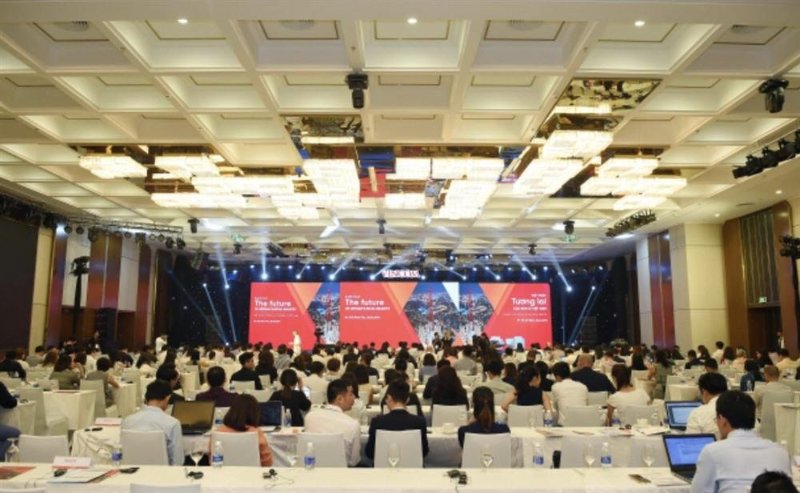
More than 400 retail industry experts and representatives took part in the “The Future of Vietnam’s Retail Industry” seminar in HCM City. (Photo: VNA)
According to Ngo Tri Long, an economic expert from the Ministry of Finance, noted that Vietnamese business are taking the lead in reinventing consumption trends and improving the standard of living in Vietnam.
The successful retailer, he said, is one with strong capacity who understands what consumers need.
He said the main trends in the retail industry include improving customer’s experiences; combining retail and cultural activities; applying technologies in the retail system; integrating physical and digital; and the rise of APAC brands.
Rebecca Pearson, Deputy Director of CBRE Asia, in 2018, Vietnam ranked second in the world in terms of consumer confidence as its retail sector developed strongly. Many Vietnamese brands have reached out to the world, especially electronic products and delivery services.
Vietnam has huge potential to develop its retail market, she stressed.
Dinh Thi My Loan, President of the Association of Vietnam Retailers, told the seminar there is “big room for the modern retail sector to develop” since retail channels such as supermarkets, shopping centres and online shopping platforms account for less than 30 percent of the retail market.
The expansion of retail chains is also a strongly growing trend in the country, she noted.
Companies want to develop chains in all sectors like cosmetics, fashion, and food and beverages.
“Retail chain growth of 20-30 percent is expected this year,” Loan said.
The development of chains will help companies promote their brands, enhance their competitiveness, increase their revenue, and reduce risks, she said.
Dymfke Kuijpers, senior partner for consumer strategy and global retail for McKinsey, said that digital and AI were being used in shopping malls and that the lines between traditional retail and e-retail were blurring.
New technologies and AI are enabling stores to tighten links, and new types of partnership between operators and tenants are evolving, she said.
Companies at the seminar also shared their experience in developing retail chains.


















